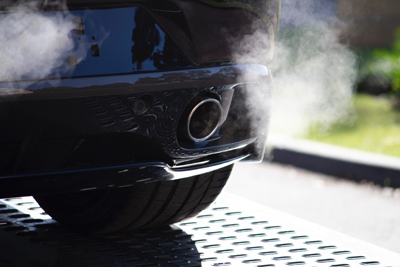Rhode Island will join seven states to rein in carbon pollution.
Democratic Gov. Dan McKee said May 10, along with state officials and legislators, the state will adopt clean car and truck emissions standards to reduce greenhouse gases. The policy would slash tailpipe emissions from cars, trucks and SUVs.
“The Act on Climate put us on the clock for meeting major carbon reduction mandates, and it’s clear to me that Rhode Island will only meet the mandates by addressing the transportation sector head-on,” McKee said in a release. “Implementing the Advanced Clean Cars II and Advanced Clean Trucks, policy will help us do exactly that, minimize smog across the state but especially in environmental justice communities, and ensure adequate customer choice on electric vehicles in the future.”
The Ocean State joins Washington, Virginia, Vermont, Oregon, New York and Massachusetts in joining the Advanced Clean Cars II and Advanced Clean Trucks standards. Connecticut, Colorado, Delaware, Maryland and New Jersey are considering adopting the standards, according to a release.
Through the Act on Climate, the release says, Rhode Island is working to reduce vehicle emissions which cause nearly 40% of greenhouse gas emissions in the state. Regulations require manufacturers to deliver more clean vehicles to consumers in the state.
According to a release, all new cars imported to the state, under regulations filed by the Department of Environmental Management, require those cars to be non-gas powered, under the adoption of the Advanced Clean Cars II and Advanced Clean Trucks standards.
“As we work to advance our clean energy and energy efficiency objectives, we remain steadfast in our commitment to also lowering our transportation emissions through electric vehicle adoption,” interim State Energy Commissioner Chris Kearns said in a release. “We have seen Rhode Islanders respond strongly to the state’s electric vehicle rebate program since it launched last July. The Advanced Clean Cars II and Advanced Clean Trucks regulations and process, which Gov. McKee has announced today, will help make significant strides towards our goal of achieving net-zero emissions by 2050.”
The emissions policy, according to a release, originated in California to reduce smog-causing pollution and greenhouse gases from the state’s light-duty fleet of vehicles.










Abby Andrews